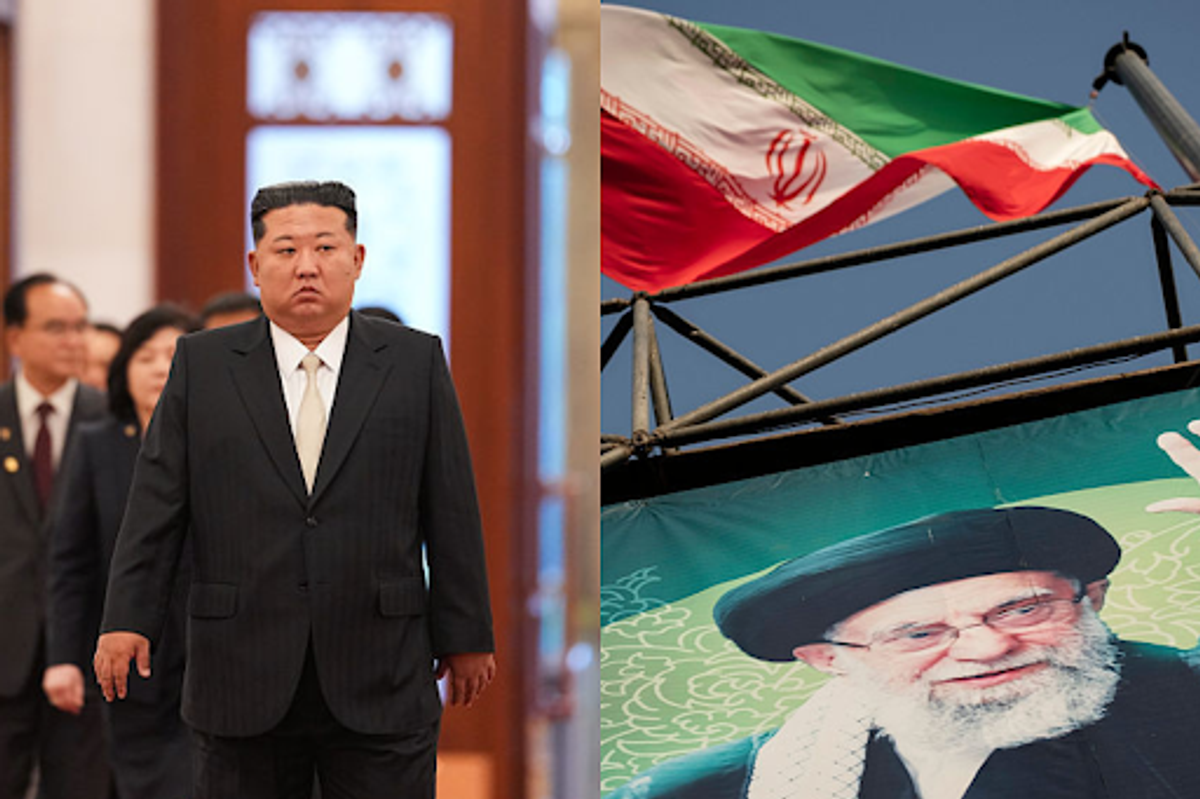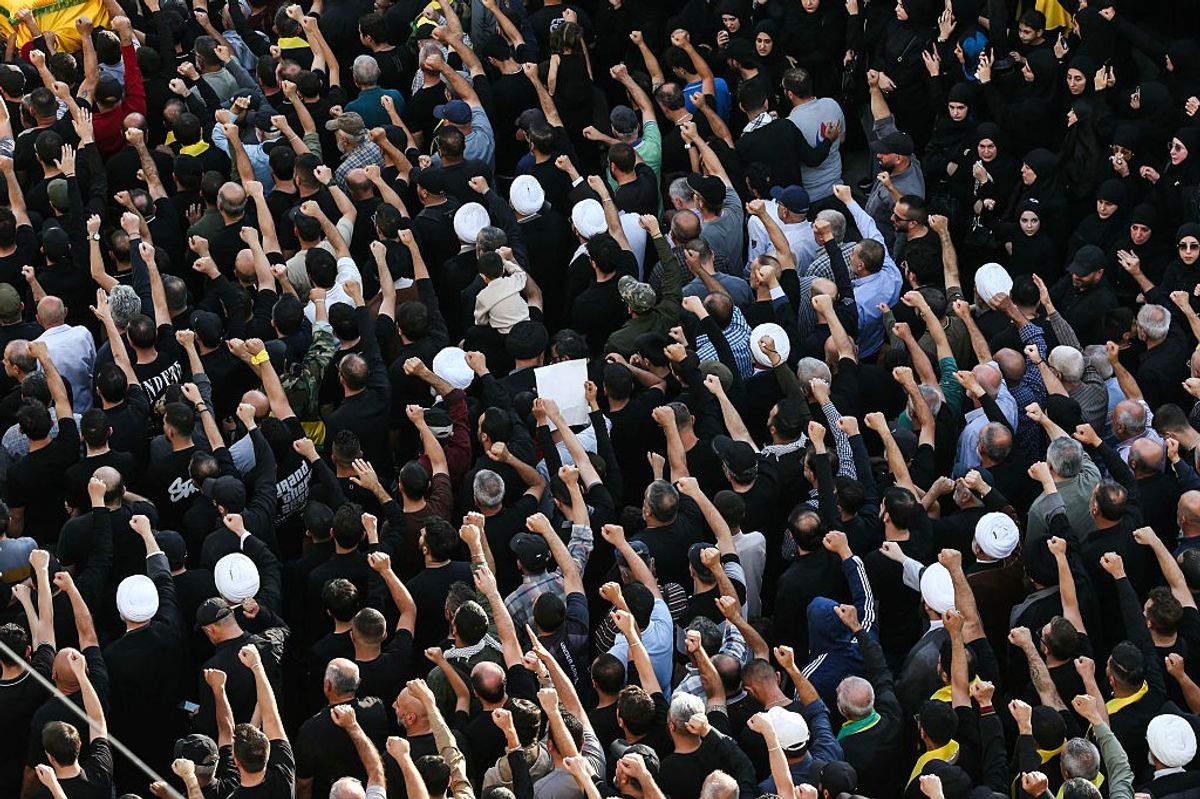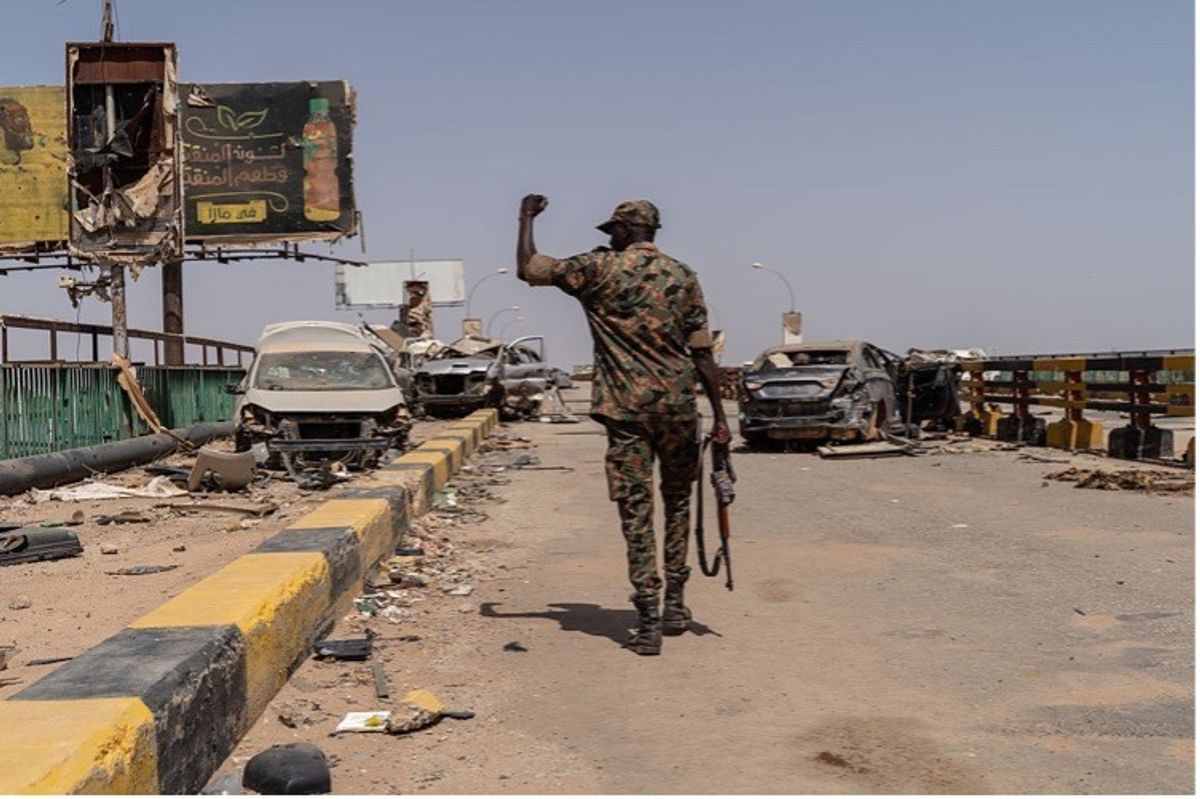SUBSCRIBER+EXCLUSIVE REPORTING — Even before the body of Iranian President Ebrahim Raisi was found, Ayatollah Ali Khamenei, Iran’s 85-year-old Supreme Leader, tweeted an exhortation for calm. “The nation doesn't need to be worried or anxious,” he said, “as the administration of the country will not be disrupted at all.”
No disruption at all. Put another way, the bland and repressive Raisi would not be missed, not even by his patron.
Under Iranian law, acting president Mohammed Mokhber must hold an election for Raisi’s successor within 50 days, and analysts say Khamenei’s no-worries message hardly guarantees a placid transition of power. Iran’s restive population; during Raisi's tenure, people took to the streets to protest the government's repression and its handling of the economy. Many experts believe the 50-day period will be punctuated by tension, possible unrest, and crackdowns to tamp down any protests.
“Iran’s leadership will have no problem finding a couple of hardline candidates and staging elections within 50 days,” Suzanne DiMaggio, director of the U.S.-Iran Initiative at the Carnegie Endowment for International Peace, told The Cipher Brief. “The challenge will be legitimacy.” She noted that Iran’s March 2024 parliamentary elections saw record low turnout, revealing a widening disconnect between the Iranian people and political system. “With reformist and moderate candidates boxed out of running,” DiMaggio said, “the meaning of elections is increasingly being questioned.”
Raisi was killed in a helicopter crash Sunday, along with Foreign Minister Hossein Amir Abdollahian, the governor of Iran’s East Azerbaijan province, a senior cleric from Tabriz, a Revolutionary Guard official and three crew members. The deaths come at a critical moment for Iran – just a month after a showdown with Israel that brought the two countries to the brink of war, and only days after the U.S. and Iran held talks via intermediaries in an attempt to lower tensions in the region.
Raisi’s death leaves fundamental questions: Who will be the nation’s next president? What might his death mean for the contest to succeed Khamenei himself? And what if any change will come in terms of Iran’s domestic and foreign policies?
“The regime is at a tipping point — politically, economically, and even militarily,” Robin Wright, a longtime observer of Iran and fellow at the U.S. Institute of Peace, told the New York Times. “It is very nervous about its future and the durability of its core ideology.”
Succeeding Raisi
The 50-day period before a new round of elections will likely see intense jockeying behind the scenes, and as DiMaggio and other experts stressed, an equally intense effort by the regime to ensure that any infighting doesn’t spill into the public domain.
Iran’s Guardian Council, a group of prominent clerics and lawyers, will decide who is allowed on the ballot. In the last presidential election, in 2021, the Council disqualified hundreds of candidates and ultimately permitted only Raisi and six others to contest the election.
Raisi had a reputation as an ice-veined, unimaginative, loyal apparatchik. His nickname, “butcher of Tehran,” may if anything have been more colorful than he merited.
“Raisi’s primary legacy is that of a loyal servant of a repressive system,” Ray Takeyh, an Iran scholar at the Council on Foreign Relations, wrote Monday. “As president, he was submissive to Khamenei and followed his direction with diligence and discipline.” Raisi’s “discipline” was most prominently on view in 2022, during the crackdown on protests triggered by the death of Mahsa Amini, a young woman who died in custody after her arrest for failing to wear a headscarf.
Takeyh said that “the next president, to be chosen in general elections that will again be tightly controlled by authorities, is likely to be just as conservative as Raisi, but younger.”
“In many ways, Ebrahim Raisi would indeed be difficult to replace,” Norm Roule, former National Intelligence Manager for the Director of National Intelligence, told The Cipher Brief. “Raisi brings decades of loyalty to the hardline leadership, including experience as a prosecutor in show trials in which he condemned thousands of perceived regime opponents to death during Iran’s revolutionary era.”
Roule said that Tehran was likely already a “stew of rumors” about the political machinations to come.
“Insiders, analysts, and observers will be busy sifting through the names and networks of possible candidates,” Roule said. He added that while the regime will do all it can to project calm, “it knows an election is a time of potential turbulence…this election could spark a new wave of protestors.”
Others expressed doubt that Raisi’s death and the subsequent political struggles would lead to unrest.
“The most likely outcome is quiet competition within the state’s coercive apparatus, with elements of the Islamic Revolutionary Guard Corps (IRGC) and military and intelligence figures competing for advantage, and a possible marginalization of clerical leadership in the longer term,” Jon Alterman, director of the Middle East Program at the Center for Strategic and International Studies, wrote in an analysis. “This trend has been underway in Iran for more than a decade, as popular hostility to the rule of clerics grows among Iran’s young and increasingly impoverished population.”
The succession that matters more
Raisi’s death has brought fresh attention to another struggle for power that looms in Iran. For decades, the position of Supreme Leader has been the seat of ultimate power in the Iranian theocracy, and the position that controls the ideological and coercive elements of the government. And that seat may be vacant before long.
Ayatollah Khamenei turned 85 last month, and he has been reported to be in ailing health. Before Sunday, Raisi was said to have been a leading contender to replace him, along with Khamenei’s son Mojtaba.
“Raisi’s death would make Mojtaba the front-runner,” Roule told The Cipher Brief. “He already has strong ties to the Revolutionary Guard and a firm hand on the security architecture managed by the Office of the Supreme Leader. Iran’s hardliner elites know that he will protect their interests.”
But Roule and others said that Mojtaba Khamenei may be a flawed candidate for his father’s role. Some Iranians have bristled at his public ambition to replace his father; others note that he has held no senior positions in the theocracy. Perhaps most important, a son’s succession might bring back memories of the pre-revolutionary rule of the Shah.
As The Economist put it Monday, “Mojtaba would represent a hereditary transfer of power in a regime that came to power by overthrowing a hereditary monarchy.”
Iran and the world
What will change on the policy front, whoever takes the reins after Raisi? Here most experts are in agreement; in the short term, not too much.
While Iran’s leaders have shown no appetite for ramping up to a full-blown war with Israel or the U.S., the country continues to arm and support militant groups such as Hezbollah in Lebanon, the Houthis in Yemen, and Shia militias in Iraq and Syria - not to mention its long-running support for Hamas. These proxy efforts are likely to continue.
“The IRCG holds dominant sway over Iran-aligned groups and proxies in the region, so the death of Raisi will have little to no impact on these relationships and their activities,” DiMaggio says. “Expect more continuity than change.”
War by proxies has been “so spectacularly successful” for Iran, says Takeyh, that there is no impetus for regime to shift.
Nor is it likely that Iran will change course on its nuclear program. Since the U.S. backed out of the deal, known formally as the Joint Comprehensive Plan of Action (JCPOA), Iran has produced nuclear fuel enriched almost to the level needed to make several nuclear bombs.
And despite the recent indirect engagement with the U.S., hostility to Washington has continued – and that isn’t expected to abate under a new president. In the aftermath of Raisi’s death, some prominent Iranians sought to blame the U.S. for the crash. Aircraft in Iran have long lacked adequate parts and safety checks because of Western sanctions, and former Iranian Foreign Minister Mohammad Javad Zarif told the Associated Press that “one of the main culprits of yesterday’s tragedy is the United States, which...embargoed the sale of aircraft and aviation parts to Iran and does not allow the people of Iran to enjoy good aviation facilities.”
“In the near term, there is little evidence that a new Iranian president would introduce broad change in domestic or foreign policy,” Roule said. “Iran’s foreign policy would likely remain assertive while eschewing actions that it believes could ignite a regime-threatening war with the United States.”
Read more expert-driven national security insights, perspective and analysis in The Cipher Brief because National Security is Everyone’s Business.















